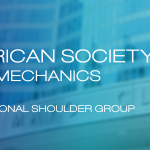Progress in Clinical Motor Control: Neurorehabilitation
APDM in Attendance at the first conference on Progress in Clinical Motor Control: Neurorehabilitation
State College, Pennsylvania
July 23-25
APDM Wearable Technologies is a digital health company that offers sensor-based solutions for quantifying human movement. Deployed by thousands of researchers and clinicians worldwide, our proprietary Opal wearable sensors and sophisticated algorithms produce reliable and sensitive outcome measures of disease progression in neurological and chronic conditions. These outcome measures provide actionable data for rehabilitation, monitoring neurological patients (e.g. cerebral palsy, ataxia, Parkinson’s disease, multiple sclerosis), and for longitudinally tracking minimal detectable changes. APDM offers three different solutions utilizing the Opal sensor technology designed to meet the individualized needs of our customers:
- Moveo Explorer produces full-body kinematic data, including joint angles and range of motion during functional tasks.
- Mobility Lab generates spatiotemporal outcome measures of gait and balance (our most popular system for clinical trials).
- Motion Studio provides access to synchronized raw inertial data, including triaxial acceleration, angular velocity, magnetic field, and orientation tracking.
The first conference on Progress in Clinical Motor Control: Neurorehabilitation focuses on the challenges of applying basic, clinical, and engineering approaches to improving the current and future potential for neurorehabilitation. Participants will range from scientists focused on understanding basic mechanisms of cognition and motor control that are impacted by central nervous system lesions to engineers developing human-brain-machine interfaces and devices to promote recovery in neurorehabilitation.
Dr. Kristen Sowalsky will be providing demonstrations of Moveo Explorer and Mobility Lab. Stop by our booth for live demonstrations and to learn more about integrating objective outcome measures into your motor control and neurorehabilitation research.
CITED IN
2018, Ramos, et al. “Wearable Inertial Sensor Technology Produces Endpoints with Good Reliability in Healthy Volunteers and can Detect Changes in Parkinson’s Disease Patients with Levodopa.” Clinical Neurophysiology.
2018, Howell, et al.”The Utility of Instrumented Dual-task Gait and Tablet-based Neurocognitive Measurements after Concussion.” Journal of Science & Medicine in Sport.
2018, Gera, et al. “Inertial Sensor-Based Assessment of Central Sensory Integration for Balance After Mild Traumatic Brain Injury.” Military Medicine.
2018, Lizama, et al. “A Novel Neuromodulation Technique for the Rehabilitation of Balance and Gait.” Journal of Clinical Neuroscience.
2015, Mancini, et al.”Continuous Monitoring of Turning in Parkinson’s Disease: Rehabilitation Potential.” NeuroRehabilitation.
Visit www.apdm.com/publications for additional citations.





